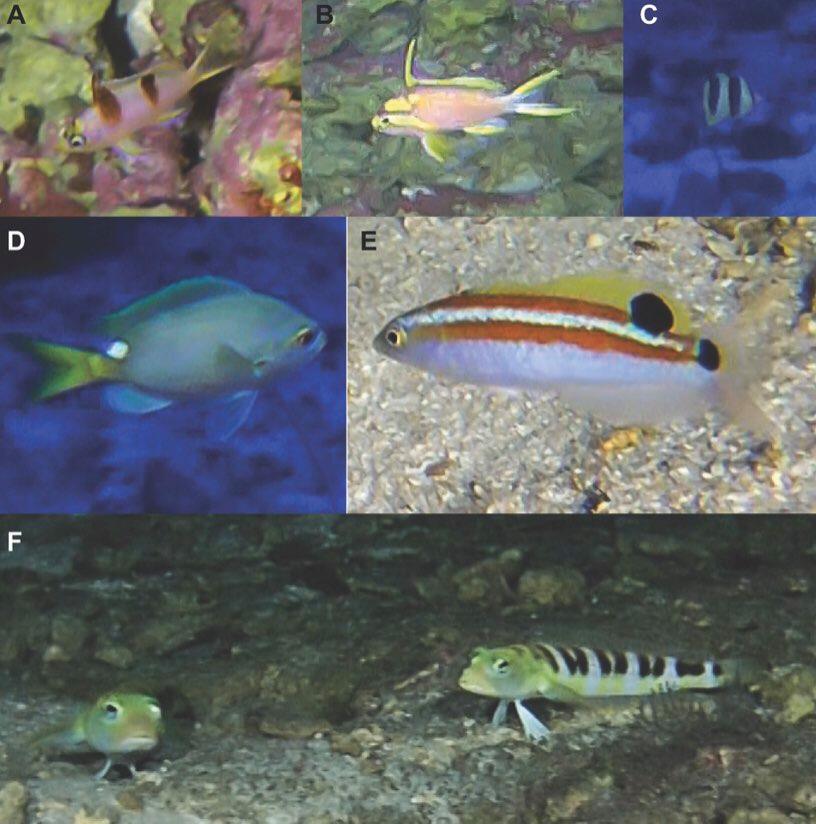Recently Discovered Marine Species on Easter Island.
Easter Island is world famous for its giant stone carvings and being a treasure trove for tropical marine fishes. A recent study by Chilean researchers has revealed their discovery of at least 6 new reef-dwelling fish species , found at depths of 160 to 280 meters using a remotely operated vehicle which have helped inform efforts to protect the vibrant ecosystem.
Video stills of potential new species found at Easter Island. Source: Erin Easton.
A scientific paper published in
Deep Sea Research Part II
has described six new marine fish species which includes a butterfly fish with vertical black bars and a wrasse with bright orange stripes. In early April 2017, technical divers with the California Academy of Sciences captured a specimen of one of the new species - a damsel fish with yellow fins.
Science director Matthias Gorny, of Oceana Chile and colleagues led the study using a remotely operated vehicle, or ROV, venturing to the "twilight zone", or deeper ocean zones beyond the reach of divers.
" The apparent uniqueness of the specimens based on morphology in the videos, provide initial support that these are new species never before described, or at the very least are genetically distinct populations
"- said Lead author Erin Easton, a biologist at Catholic University of the North in Coquimbo, Chile.
The findings of this expedition helped to create one of the largest marine protected areas in the world, a whopping 720,000- square kilometre marine park around Easter Island.
Easter island, locally known as Rapa Nui, is situated at the centre of a nutrient-poor patch of ocean called the South Pacific gyre. The islands location in this "marine desert" is thought to make marine wildlife there particularly vulnerable to climate change and other man made threats. Similar to the Galapagos, Easter Island is thought to be a natural laboratory for evolution, due to its surrounding seamounts, or underwater mountains that have a high number of species found nowhere else on Earth. Many marine species are yet to be discovered there and without protective measures could be lost to science forever.
© Ocean Research & Conservation Ireland (ORCireland) and www.orcireland.ie , est. 2017. If you like our blogs on the latest news in marine science and would like to support our work, visit www.orcireland.ie to become a member, to volunteer or to make a donation today. This article has been composed based on credible sources.
Reference:
Easton, E., Berkenpas, E., (2017). Diversity of deep-sea fishes of Easter Island Ecoregion. Deep Sea Research Part II: Tropical Studies in Oceanography. Vol 137, Pg 78 - 88.
SHARE THIS ARTICLE














